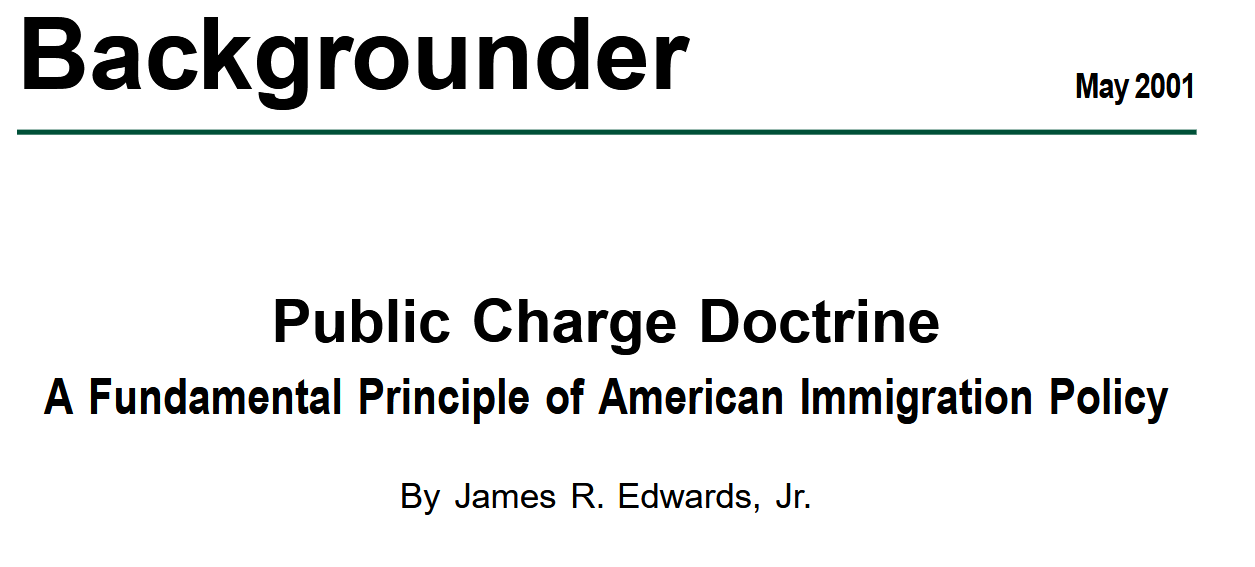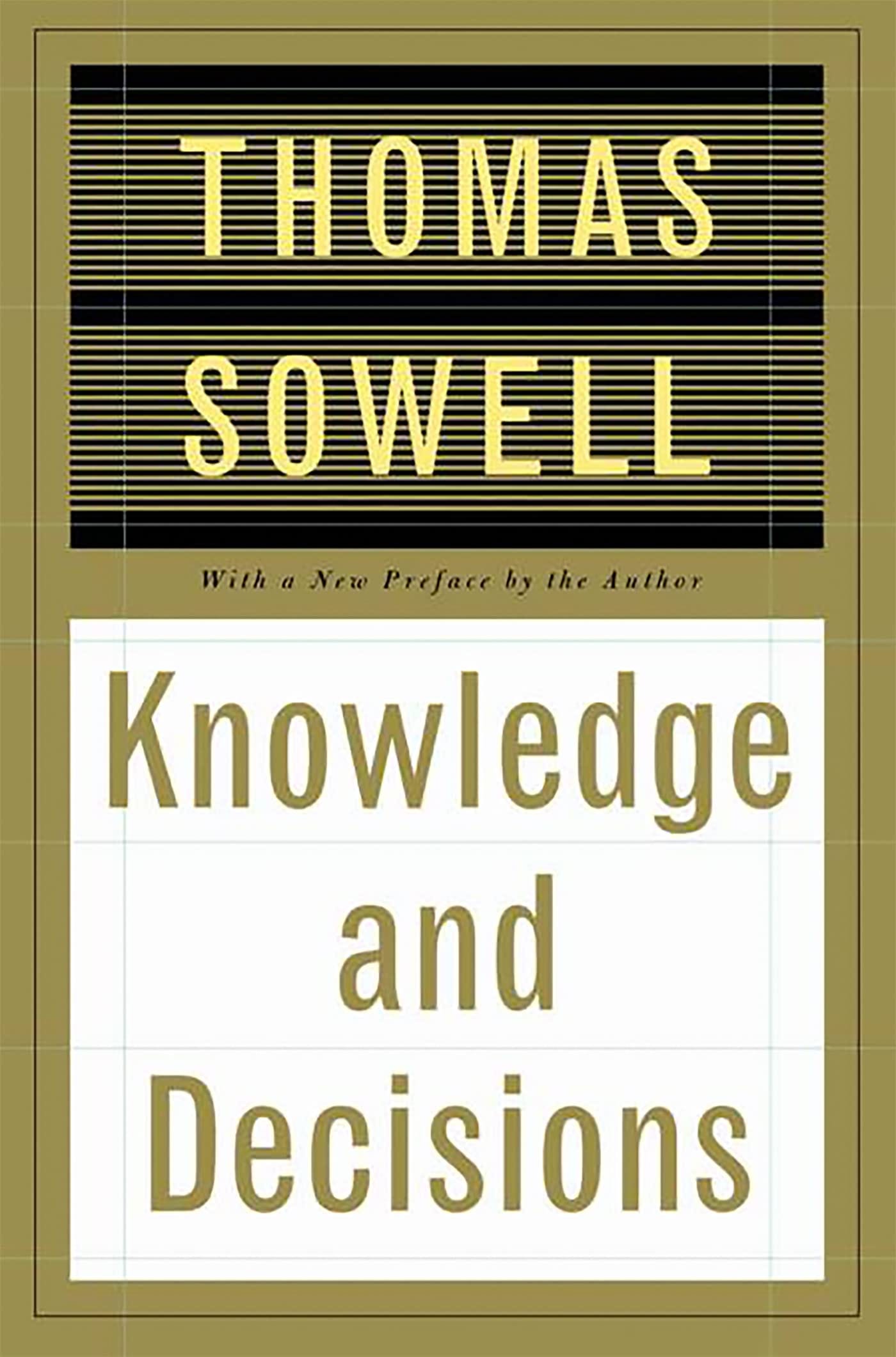According to Title 8, chapter 11, subchapter 2, part 2, section 1182 of the United States Code:
“Any alien who, in the opinion of the consular officer at the time of application for a visa, or in the opinion of the Attorney General at the time of application for admission or adjustment of status, is likely at any time to become a public charge is inadmissible.”
This simple yet vague 1994 addition to American law was intended to prevent the admittance of immigrants who might collect benefits from American taxpayers. It also took aim at immigrants already in the country who might be collecting benefits by preventing them from adjusting their status to another type of visa such as going from a work permit to a permanent resident permit (i.e. a Green Card). One would think that the wording of this legislation is sufficient for the government to exclude would-be immigrants who want to abuse the American welfare state from entering the country, but unfortunately this has not been the case and instead has become a political football.

Since the legislation does not go into detail as to the definition of a “public charge” various Presidents and their administrations have regularly rehashed and remade Department of Homeland Security (DHS) policy as to what defines a public charge. During the Obama years immigrants on or likely to use housing assistance, food stamps, government healthcare programs (state and federal), as well as those receiving certain cash benefits were able to immigrate to or remain in the United States as those programs did not fall under the DHS definition of the public charge rule.
The first Trump administration did change these rules by adding Medicaid, food stamps, and housing benefits to the list of reasons to exclude potential immigrants and refuse an adjustment in status to current holders of non-immigrant visas, but this rule change did not come into effect until February of 2020, less than 11 months before Trump would leave office and the Biden administration and courts would strike down Trump’s DHS rules and replace them with the current set.
The rules currently exclude only those potential or current immigrants who would use the following three taxpayer funded benefits:
- Supplemental Security Income (SSI),
- Cash Assistance under the Temporary Assistance for Needy Families (TANF) program, and
- income maintenance programs from state and local governments.
Meanwhile, the list of welfare benefits that do not exclude potential immigrants runs into the dozens. Immigrants who received COVID relief checks, immigrants who need disaster assistance, immigrants who use state funded childcare, immigrants who use student or mortgage loan programs, and immigrants who need or would need special cash assistance. These are just a few of the benefits that do not make someone a public charge in the eyes of immigration officials.
In addition to those ample welfare benefits, countless categories of potential and current immigrants are not subject to any kind of public charge review of their immigration status. Refugees, juveniles, DACA recipients, people applying for special protected status (TPS), people renewing green cards, people applying for US citizenship, those who were abused by their husbands (regardless of his status or citizenship), and asylees.
The American taxpayer is, in essence, paying for the world’s largest battered women’s shelter, food bank, healthcare charity, and public housing project.
Americans are footing the bill for gargantuan levels of immigrant welfare use all the while our government officials have made an ideological battle out of whether or not someone in need of food stamps is worth admitting to our country or not.
To quote Thomas Sowell: “The most basic question is not what is best, but who shall decide what is best.”

With masses of right wingers, including many nationalists and national-conservatives, entering the halls of American government it is time to begin rethinking these ridiculous immigration policies and for nationalists and patriots to decide what is best for the American people. Not only do we need to change DHS policies so that virtually all forms of public assistance make an immigrant ineligible for admission or stay in the country, but we also need to think creatively and use these policy changes to promote the necessary policy of repatriation.
With that in mind I have three additional policies in mind:
- Review all citizenship applications since 1994 and de-naturalize any immigrant who used welfare before becoming a citizen.
- Change policy so that immigrants who seek renew their lawful permanent residence status (Green Cards) are subject to a public charge review.
- Review the welfare use of any immigrants in the country and revoke their visa for use of welfare benefits.
Additionally, these immigrants should be given no grace period to get off of these welfare programs. If they are utilizing the programs at the policies go into effect or have utilize them in the past while changing their status, they will be subject to de-naturalization, deportation, and repatriation.
These three policies would result in the deportation and repatriation of tens of millions of recent immigrants to the United States and would go a long way to reversing the disastrous process of the Great Replacement that has been visited upon the American people without our consent.
According to the 2022 Survey of Income and Program Participation carried out by the Census Bureau some 54% of households headed by immigrants utilize one or more major welfare programs. Further analysis by the Center for Immigration Studies revealed that 50.2% of households headed by a naturalized citizen are utilizing a major welfare program. This would mean that of the roughly 25 million naturalized immigrants in the country 12.55 million of them are likely to reside in a household using a major welfare program. These 12.55 million immigrants need to be investigated by the Department of Homeland Security and if found to have been on welfare before being granted citizenship must have their citizenship revoked.
Up next in our necessary immigrant welfare review are the 12.8 million Green Card holders present in the United States. They must be subject to a public charge review under the new proposed rules where any welfare use is disqualifying, and if they are found to be utilizing welfare benefits they must be stripped of their Green Card and deported. According to the aforementioned Center for Immigration Studies findings 53.9% of non-citizen households utilize at least one major American welfare program and would therefore be subject to deportation. In total some 7 million Green Card holders are likely to find themselves stripped of their permanent residence status and therefore mandated to leave the United States.
Finally there are any other legal immigrants present in the United States. According to the Pew Research Center there are about 3 million illegal immigrants granted temporary protected status (TPS)—a status that gives them access to welfare benefits—and roughly 2 million additional temporary residents in the country. Any immigrant who cannot have their temporary status simply revoked by the Department of Homeland Security must be subject to a review of their welfare use and subsequently deported.
In total the United States could de-naturalize, deport, and repatriate as many as 22.45 million immigrants in the United States, or about 47% of the entire immigrant population currently present in the country. I should note that I have not included estimates of US citizen children who might depart with their immigrant parents, nor of US-born second-generation immigrants who may depart with a first-generation immigrant spouse.
What is clear is that with simple policy changes the Great Replacement can be substantially reversed. If we combine these suggestions with the litany of other proposals the White Papers Policy Institute has made on deportation and repatriation we can reclaim the United States for the descendants of the European pioneers who conquered this continent.
